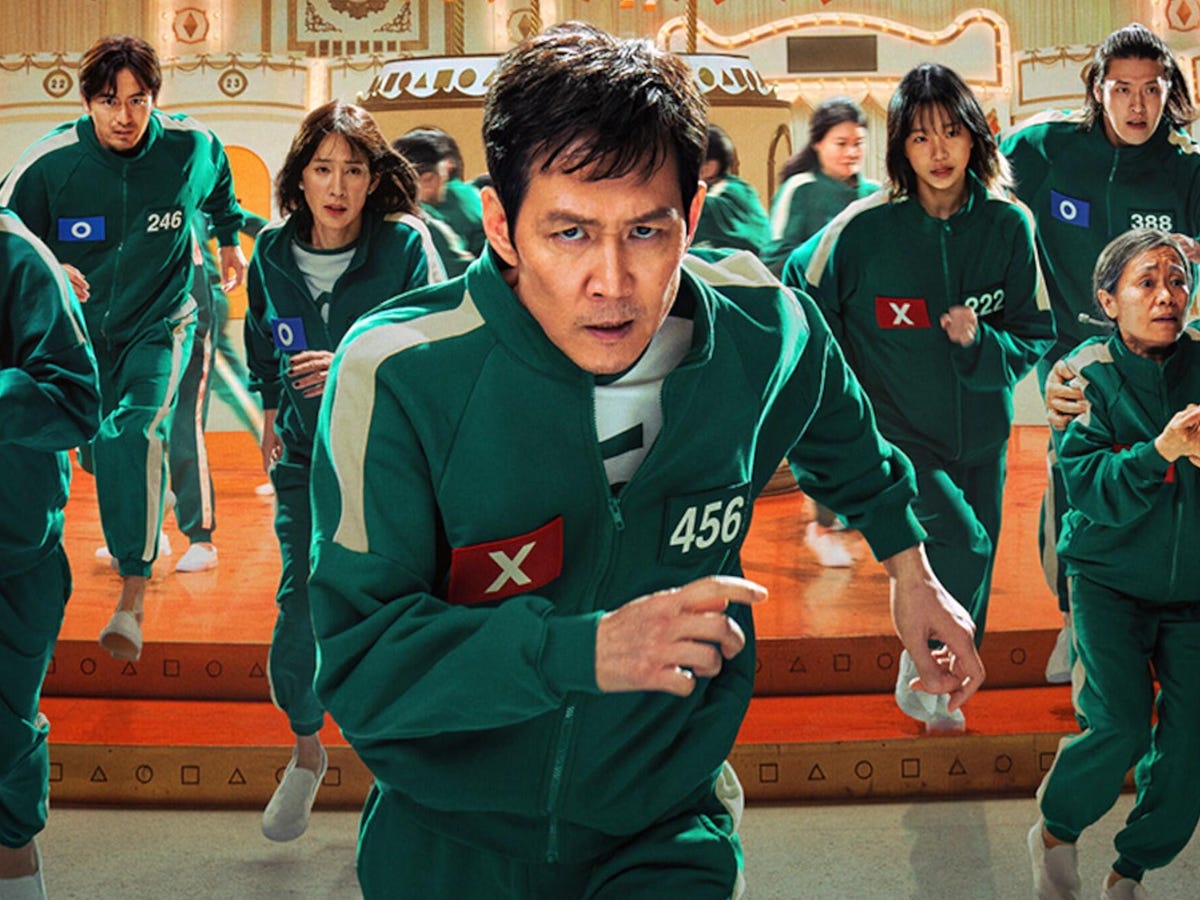Sang woo squid game – Sang Woo, a prominent character in the gripping South Korean series Squid Game, is a multifaceted individual whose actions and motivations have captivated audiences worldwide. As a former investment banker driven by desperation, he finds himself entangled in a deadly game where his strategic mind and ruthless nature are put to the ultimate test.
Throughout the series, Sang Woo’s relationships with other contestants, particularly Gi-hun, Ali, and Sae-byeok, highlight the complexities of human nature and the moral dilemmas faced under extreme circumstances.
Character Overview
Sang-woo is a highly intelligent and resourceful individual, but he is also ruthless and ambitious. He is driven by a desire to win the Squid Game and escape his poverty-stricken life. He is willing to do whatever it takes to survive, even if it means betraying his fellow players.
Sang-woo’s physical appearance reflects his personality. He is tall and muscular, with a shaved head and a cold, calculating expression. He is often seen wearing a black tracksuit, which symbolizes his determination to win the Squid Game.
Role and Significance, Sang woo squid game
Sang-woo is one of the main characters in the Squid Game. He is a former investment banker who is deeply in debt. He enters the Squid Game in the hopes of winning the prize money and paying off his debts.
Sang-woo is a formidable opponent in the Squid Game. He is intelligent, resourceful, and ruthless. He is also willing to do whatever it takes to survive, even if it means betraying his fellow players.
Character Development
Sang-woo undergoes a significant transformation throughout the Squid Game. At the beginning of the game, he is a cold and calculating individual who is only interested in winning. However, as the game progresses, he begins to develop a sense of empathy for his fellow players.
By the end of the game, Sang-woo has become a more complex and sympathetic character. He is still ambitious and driven, but he is also capable of compassion and sacrifice. He is a survivor, but he is also a human being.
Relationships and Interactions
Sang Woo’s relationships with other characters play a significant role in shaping his character and actions throughout the series. His interactions with Gi-hun, Ali, and Sae-byeok reveal his complex motivations, internal struggles, and the impact of the games on his humanity.
Relationship with Gi-hun
Sang Woo’s relationship with Gi-hun is a complex one. Initially, they are allies, working together to survive the games. However, as the games progress, Sang Woo’s desperation and ruthlessness begin to clash with Gi-hun’s more compassionate nature. This conflict leads to a falling out between the two, with Sang Woo ultimately betraying Gi-hun in order to save himself.
Relationship with Ali
Sang Woo’s relationship with Ali is more sympathetic. Ali is a kind and gentle soul, and Sang Woo initially feels protective towards him. However, as the games become more brutal, Sang Woo’s survival instincts take over, and he is willing to sacrifice Ali in order to save himself.
This decision weighs heavily on Sang Woo’s conscience, and he is ultimately unable to live with the guilt of what he has done.
Relationship with Sae-byeok
Sang Woo’s relationship with Sae-byeok is one of mutual respect. Sae-byeok is a skilled and resourceful player, and Sang Woo recognizes her strength. They form an alliance, but it is ultimately doomed to fail, as both are determined to win the games and escape the island.
Moral Struggles and Ethical Dilemmas
Sang Woo’s journey in Squid Game is fraught with moral choices and ethical dilemmas that test his humanity and principles. Throughout the deadly competition, he grapples with the boundaries between survival and morality, struggling to reconcile his desire to win with his conscience.
One of the most pivotal moral struggles Sang Woo faces is his decision to betray his childhood friend, Ali Abdul. In the Marbles game, Sang Woo realizes that Ali has memorized the pattern on his bag, giving him an unfair advantage.
Torn between his loyalty to his friend and his own survival, Sang Woo chooses to trick Ali, leading to his tragic demise.
Consequences of Sang Woo’s Actions
Sang Woo’s betrayal of Ali has far-reaching consequences. It not only costs Ali his life but also weighs heavily on Sang Woo’s conscience. The guilt and shame of his actions haunt him throughout the game, driving him to a state of despair and desperation.
The emotional toll of Sang Woo’s moral struggles is evident in his deteriorating mental health. As the competition progresses, he becomes increasingly isolated and paranoid, losing trust in those around him. His desperation for survival ultimately leads him to commit a heinous act in the Glass Bridge game, sacrificing a fellow player to ensure his own safety.
Symbolism and Metaphor
Sang Woo’s character in Squid Game is replete with symbolism and metaphors that contribute to the overall meaning and impact of the series. These elements explore deeper themes and ideas, adding depth and complexity to his character.
Chess
Chess is a recurring symbol associated with Sang Woo. As a skilled chess player, he sees the games in Squid Game as strategic challenges. His analytical mind and ability to anticipate his opponents’ moves reflect his cunning and resourcefulness.
Moreover, the chessboard represents the larger societal game in which the characters are trapped. The rules and constraints of the games mirror the inequalities and injustices that exist in the outside world, highlighting the futility of individual efforts to overcome systemic oppression.
The Glass Bridge
The glass bridge scene is a pivotal moment for Sang Woo. His choice to sacrifice Ali to save himself symbolizes his abandonment of his moral compass in the face of desperation. The shattered glass represents his broken trust and shattered innocence.
This scene also highlights the theme of survival at any cost. In a world where individuals are pitted against each other for their own survival, morality and compassion become secondary considerations.
Cultural and Societal Commentary: Sang Woo Squid Game
Sang Woo’s character reflects the societal issue of class inequality. He comes from a wealthy background and has access to better education and opportunities than those from lower socioeconomic classes. His privileged upbringing has given him an advantage in life, and he often looks down on those who are less fortunate.
This is evident in his interactions with Ali, a Pakistani immigrant who is struggling to make ends meet. Sang Woo treats Ali with disdain and disrespect, and he is quick to judge him based on his appearance and background.The character of Sang Woo also explores the theme of competition.
Sang Woo is a highly competitive individual, and he is always striving to be the best. He is willing to do whatever it takes to win, even if it means cheating or hurting others. This is evident in his interactions with Gi-hun, a childhood friend who is also competing in the Squid Game.
Sang Woo is determined to beat Gi-hun, and he is willing to use any means necessary to do so.
Conclusive Thoughts
Sang Woo’s character serves as a poignant reminder of the consequences of unchecked ambition and the fragility of human connections in the face of adversity. His journey through the Squid Game not only captivates but also provokes contemplation on the societal issues and ethical boundaries that define our world.
FAQs
What is Sang Woo’s primary motivation in the Squid Game?
Sang Woo’s primary motivation is to win the game and claim the prize money to resolve his overwhelming debts and provide a better life for his mother.
How does Sang Woo’s relationship with Gi-hun evolve throughout the series?
Sang Woo and Gi-hun’s relationship begins as a tentative alliance but gradually deteriorates as the game progresses, revealing their contrasting values and priorities.
What is the significance of the symbolism associated with Sang Woo’s character?
The number “218,” assigned to Sang Woo as a player, represents both his strategic nature and his ultimate fate, foreshadowing his calculated approach and tragic end.



